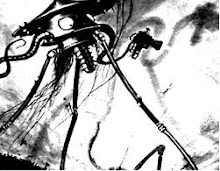Constitutional Showdown
I read this article in the New York Times today, which reports that the Senate voted 51-47 on the bill appropriating more funds for the debacle in Iraq -- more than $96 billion -- while also sporting a non-binding measure to have US troops out of Iraq by March 31, 2008. But guess who didn't vote for the bill? That's right, Joe Lieberman -- the very same senator who broke off from the Democratic party when primary voters in Connecticut rejected his candidacy, only to subsequently run as an independent in the general election. Upon winning the 2006 senatorial election, Lieberman -- who had switched his position on the conflict in Iraq after losing the primary to the true anti-war candidate, Ned Lamont -- claimed he would be caucusing with the Democrats in the Senate. Considering that Lieberman won the election with 70% of the Republican vote, it's no surprise that he's siding with Republicans on this issue.
That aside, this is an important victory for the Democratic majority in Congress. Not only did the Senate bill pass, but so did the House version, which had even stronger language. The House version demands that US troops to be out of Iraq by September 2008 -- there's nothing non-binding about it! And this is where the constitutional showdown will occur.
President Bush has said that he will veto any Iraq-conflict appropriations bill that calls for US troop withdrawal. This New York Times article writes that both the President and Democrats in Congress seem eager for the fight.
Senator Harry Reid (D-NV) said that President Bush “doesn’t want anything other than a confrontation.” And a confrontation there will be -- but this will be bigger than just a spat between Congress and the President over the handling of the Iraq-conflict, this will be a fight between the constitutionally mandated balance of governmental powers and the unitary executive theory.
Why is this so important: because at the end of this confrontation, Americans will finally know whether or not they're living in a democracy or a dictatorship. If Congress is able to exercise it's constitutional oversight of the Executive branch, then we'll know democracy still exists in the country. But if the President successfully thwarts the efforts of Congress, then the unitary executive theory will gain strength, solidifying extra-constitutional powers to the President.
As I understand it, Congress -- and only Congress -- has the authority to declare war. While Congress authorized force in Iraq back in October of 2002, that can easily be changed at any time by Congress. From a legal standpoint, we're not at war because Congress has not declared so. Therefore, any use of force by the President is subject to the oversight of Congress. This is to prevent the Executive from wielding the nation's standing army as a political tool -- but if the President wins this fight, he will have set a new precedent that allows the President to do what he wishes with the armed forces without the oversight of Congress. We'll be one more step towards totalitarianism.
I do think that Bush will veto this bill, and I hope the Congress will continue to pursue a confrontation with the President on this issue. If so, it's likely that this could end up before the courts -- and only then will we know if Bush has sufficiently packed the Supreme Court with enough conservative justices to give him the judgment that he wants. This constitutional showdown is necessary for the people of America to know where their government stands.

